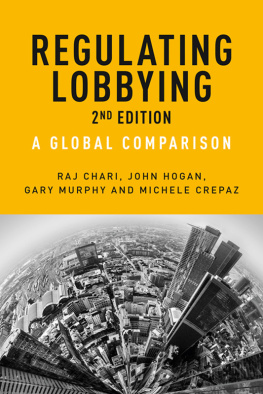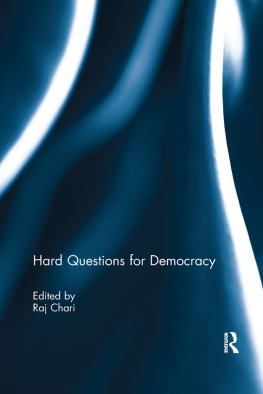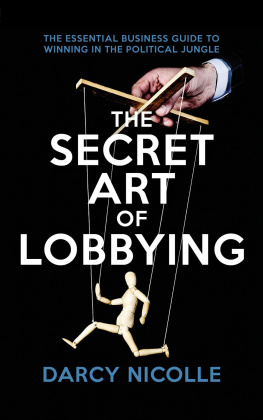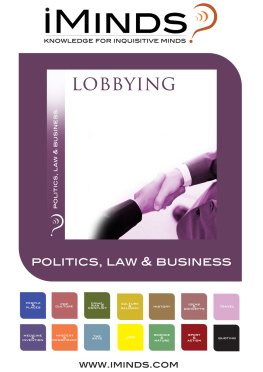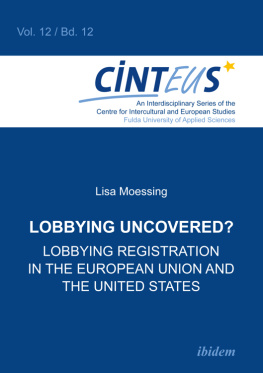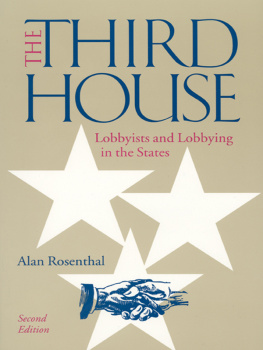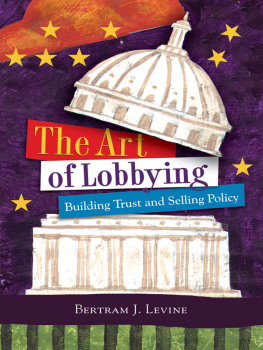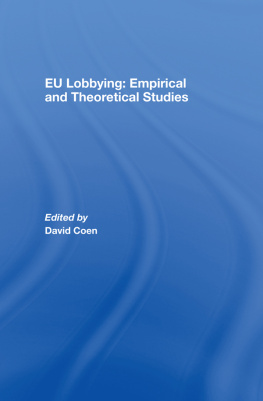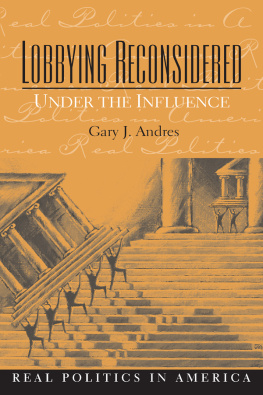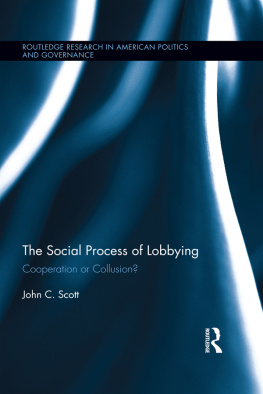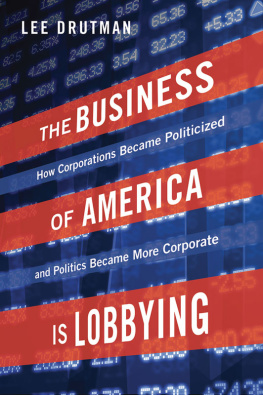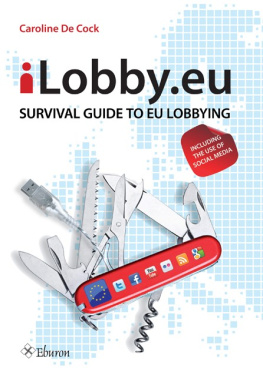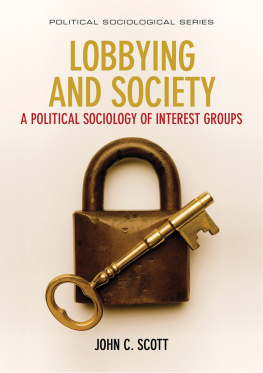Series Editors: Professor Dimitris Papadimitriou (University of Manchester), Dr Kathryn Simpson (Manchester Metropolitan University) and Dr Paul Tobin (University of Manchester)
The European Politics series seeks to tackle the biggest issues facing Europe in the twenty-first century.
Previously published under the European Policy Research Unit (EPRU) name, this long-established and highly respected series combines an important scholarly legacy with an ambitious outlook on European Studies at a time of rapid change for the discipline. Its geographical coverage encompasses the European Union, its existing and aspiring members, and wider Europe, including Russia and Turkey, and the series actively promotes disciplinary, theoretical and methodological diversity.
The editors particularly welcome critical scholarship on the politics and policy making of the European Union, on comparative European politics, and on contemporary issues and debates affecting the future of Europes socio-political and security outlook. Key areas of interest include Brexit, the environment, migration, identity politics and the ever-changing face of European integration.
Regulating lobbying
A global comparison, 2nd edition
RajChari,JohnHogan,GaryMurphyandMicheleCrepaz
Manchester University Press
Copyright Raj Chari, John Hogan, Gary Murphy and Michele Crepaz 2019
The right of Raj Chari, John Hogan, Gary Murphy and Michele Crepaz to be identified as the authors of this work has been asserted by them in accordance with the Copyright, Designs and Patents Act 1988.
Published by Manchester University Press
Altrincham Street, Manchester M1 7JA
www.manchesteruniversitypress.co.uk
British Library Cataloguing-in-Publication Data
A catalogue record for this book is available from the British Library
ISBN978 1 5261 1725 0paperback
First published 2019
The publisher has no responsibility for the persistence or accuracy of URLs for any external or third-party internet websites referred to in this book, and does not guarantee that any content on such websites is, or will remain, accurate or appropriate.
Typeset
by Toppan Best-set Premedia Limited
We are grateful for the continued support of the Regulating Lobbying Project given by Tony Mason of Manchester University Press as well as the EPRU Series Editor Peter Humphreys. We owe a debt of gratitude to the anonymous external reviewers of both the second edition proposal as well as the final manuscript for important insights from which we have benefited. Rob Byron and Danielle Shepherd of Manchester University Press were instrumental in the production phase of this book.
We are indebted to the civil servants and regulatory officials whose insights were simply amazing. They include: Elisabeth Bauer, William Beausang, Katy Budge, Joanne Hardy, Lorna Horton, Monte Krueger, Caroline Martin, Alexandra Mills, Lynn Morrison, Sherry Perrault, Karen Shepherd, Aine Stapleton, Marie Thiel and David Willis. Various interest groups have also shared valuable information with us and given us frank views, and we are particularly thankful to Susana Coroado, John Devitt, dm Fldes, Daniel Freund, Andrius Kasparaviius and Vojtch Proke. We thank the various members of the parliamentary and institutional committees we have appeared before who helped us better understand the concerns that policy makers face, ultimately helping guide our penultimate chapter.
A big thank you goes to colleagues at home and worldwide who offered insights during the research and writing phases, including: Frank Baumgartner, Patrick Bernhagen, Jan Beyers, David Coen, John Christman, Erica Edwards, Robert Elgie, David Farrell, Chris Fox, Beth Leech, Eugene Kennedy, Declan Kiberd, Sylvia Kritzinger, Katrina Lawlor, Lus Macedo Pinto de Sousa, Shane Martin, Conor McGrath, Sean McGraw, Mary Beth Oliver, Mary OCallaghan, Eoin OMalley, Paul OReilly, Paul OSullivan, Diarmuid Giollain, George Pagoulatos, Kevin Rafter, Declan Raftery, Michael Smith, Roger Sherlock, Stephen Stacy, John Stephens and Cornelia Woll.
We dedicate this book to the late Michael Moran. Mick was one of the finest academics in social science whose scholarship had a major impact, and he always cared about what real readers thought while maintaining a healthy scepticism of the modern industry of citation impact measures. We were fortunate to have worked with him as one of the EPRU series editors: he believed in the project right from its inception and shepherded the publication of the first edition of this book some ten years back. Mick was truly a mentor in his work; a mentor in his actions.
Raj, John, Gary and Michele
Dublin and Madrid, April 2018
BC | British Columbia |
COG | Coalition for Open Government |
CPI | Center for Public Integrity |
DPOH | Designated Public Office Holder |
EP | European Parliament |
EU | European Union |
FDI | Foreign Direct Investment |
FECA | Federal Election Campaign Act |
FOI | Freedom of Information |
LLA | Law on Lobbying Activity |
MEP | Member of the European Parliament |
MLA | Member of a Legislative Assembly |
MP | Member of Parliament |
NATO | North Atlantic Treaty Organization |
NGO | Non-Governmental Organisation |
OECD | Organisation for Economic Co-operation and Development |
PAC | Political Action Committee |
SEA | Single European Act |
SEC | Securities and Exchange Commission |
1
Introducing Regulating lobbying
We highlighted that work carried out by interest groups (or lobby groups we use the two terms interchangeably throughout the book) is a central and legitimate part of the democratic process within all liberal democratic systems. Yet, the term has often had negative connotations, even though the work of lobbyists is essential. Issues surrounding the openness of the policy-making process which may have been captured by specific interests therefore prompted countries to regulate the activities of lobbyists in order to increase transparency and accountability.
Further, while the original book was indeed less preoccupied with private interests role and actions when specific policies are made, we realise a decade later that lobbyists reading our work have taken their deeper understanding of the rules of the game as a basis to develop global lobbying strategies. Such actors are now consequently asking for an updated version of all the countries that have developed laws since 2008 in order to better understand the different regulatory environments in which they work.

